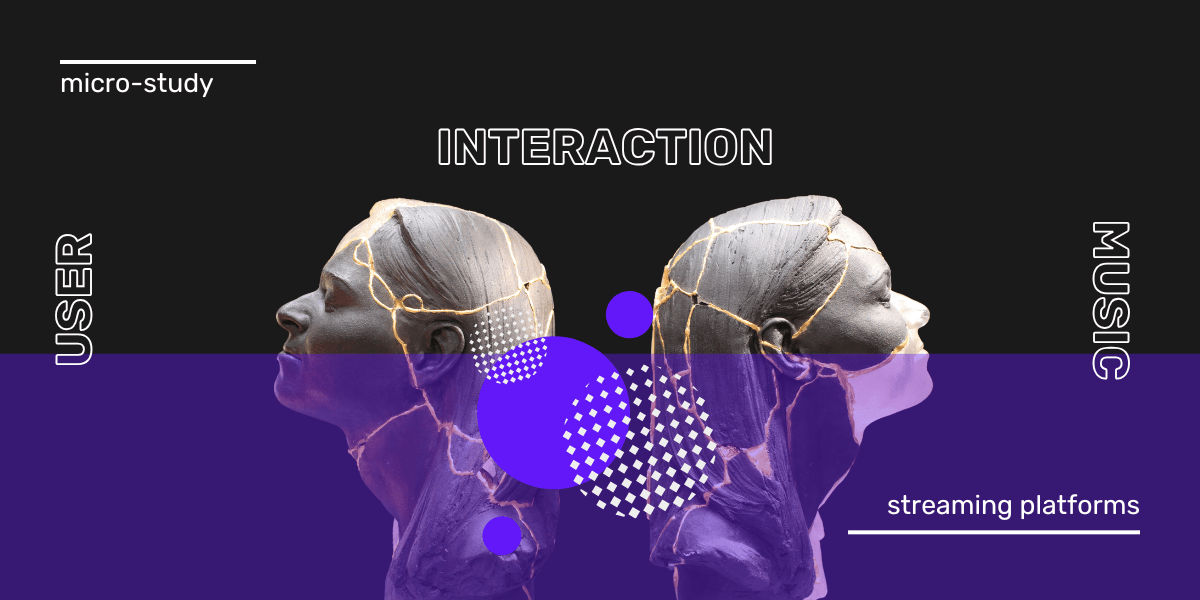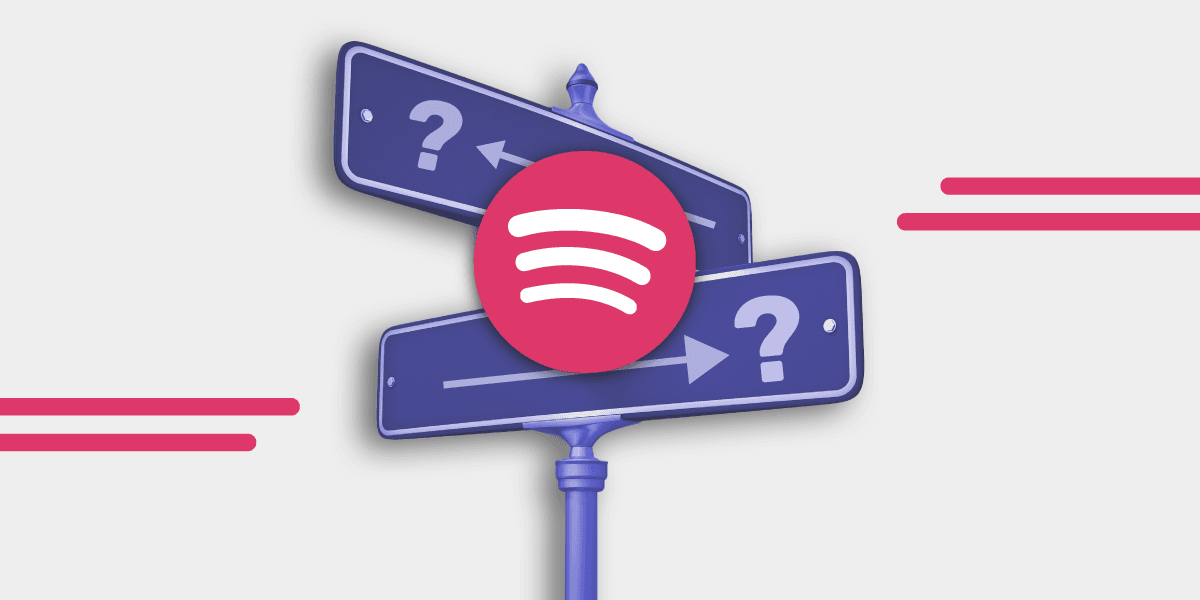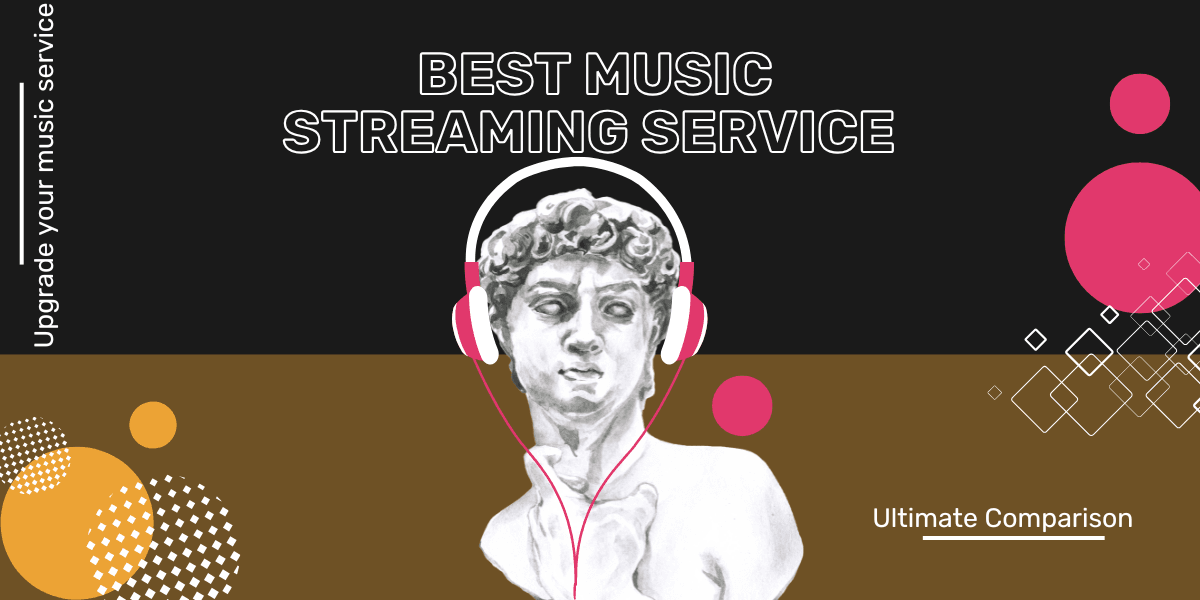Music news, tips & stories
Stay updated with the latest music streaming insights, playlist management tips, and industry news.
Micro-Study on User Interaction with Music Streaming Platforms
June 26, 2025

Micro-Study on User Interaction with Music Streaming Platforms
Abstract
The music streaming world has completely changed how we enjoy music, with major players like Qobuz, Spotify, Deezer, and TIDAL leading the charge. Other key music streaming platforms exist, such as Amazon Music, Apple Music, YouTube Music, and SoundCloud. For this study, we focused on four - Qobuz, TIDAL, Deezer, and Spotify.
By starting Reddit discussions, our research looks into what users like, how they interact, and their feelings about these platforms.
We collected data from Reddit forums dedicated to each service, where users freely share their opinions and interact with others. We used various analytical methods to understand these interactions and sentiments.
We focused on identifying what makes users happy and keeps them coming back.
The results show that users appreciate features like high-quality audio, large music libraries, and easy-to-use interfaces. The study points out the common pros and cons mentioned by users, giving platform-specific insights and suggestions for improvement.
The results shed light on what people really value about their streaming service, and the cost was not a factor for almost all users.
For example, no user in any of the data sets said they had selected the music streaming service based on the cost vs. another.
Introduction
The music streaming industry has changed how we consume and interact with music. Platforms like Qobuz, Spotify, Deezer, and TIDAL offer an extensive range of features that users can enjoy.
Understanding user preferences, interaction patterns within conversations, and sentiments can provide valuable insights into these platforms. Conversations with users highlight why they stay with one platform and why they would transfer to another.
We focus on the user experience and what features they feel are the most important.
Methodology
Data Collection
Data was collected from multiple conversations, including user interaction data and discussions from dedicated Reddit forums for each platform.
- Permission was requested for quotes, and the posed question clarified that it was research.
- The conversation was open to all users; they could answer as they wished, respond to other users, and continue the discussion. This allowed for multiple answers, context, feelings, engagement, and fewer response limitations (compared to a poll, for example).
- The data was scraped and cleaned after each conversation reached its natural end, removing anything that wasn’t a username or a comment.
- Conversations are available on Reddit; all forums are public.
Analytical Methods
The analysis used descriptive statistics to summarize user interactions, sentiment analysis to evaluate user sentiments from four Reddit discussions, and comparative analysis to identify differences and similarities across platforms.
- Stopwords were removed to focus on meaningful words like love, enjoy, dislike, hate; I wish/want, etc.
- Sentiment polarity was then categorized as positive, neutral, or negative.
The Goal of the Research
The primary goal of this research is to understand why users choose specific music streaming platforms and which features they value the most.
By analyzing user comments and sentiments, we aim to uncover the features that drive user satisfaction and why they may leave a platform based on these features (or lack thereof).
Limitations
- The analysis is based on data from Reddit forums, which may not fully represent each platform's user base.
- Additionally, the lack of demographic data limits the ability to analyze user preferences based on age, gender, or other factors.
- For this study, demographics weren’t essential; a focus was on which features people enjoyed and which features retained users regardless of demographics.
- The small sample sizes of users may not give a broad overview of the larger user base.
Data Analysis
User Interaction Metrics
It is important to note the different number of users in each subreddit.
- Qobuz: 5.5k
- Spotify: 77k
- TIDAL: 47k
- Deezer: 40k
Percentages of subreddit users who participated in each conversation:
- Qobuz: 0.38%
- Spotify: 0.048%
- TIDAL: 0.10%
- Deezer: 0.073%
The number of user comments for each platform provides a baseline for user engagement:
- Qobuz: 21 comments
- Spotify: 37 comments
- Deezer: 29 comments
- TIDAL: 49 comments
| Platform | Subreddit Size | Engagement Rate (%) | User Comments |
|---|---|---|---|
| Qobuz | 5.5k | 0.38% | 21 |
| Spotify | 77k | 0.048% | 37 |
| Deezer | 40k | 0.073% | 29 |
| TIDAL | 47k | 0.10% | 49 |
Sentiment Analysis
Sentiment analysis was performed on user comments to classify them as positive, neutral, or negative.
The results are summarized as follows:
- Qobuz: 15 Positive, 2 Neutral, 4 Negative
- Spotify: 20 Positive, 16 Neutral, 1 Negative
- Deezer: 14 Positive, 13 Neutral, 2 Negative
- TIDAL: 35 Positive, 9 Neutral, 5 Negative
| Platform | Positive Comments | Neutral Comments | Negative Comments |
|---|---|---|---|
| Qobuz | 15 | 2 | 4 |
| Spotify | 20 | 16 | 1 |
| Deezer | 14 | 13 | 2 |
| TIDAL | 35 | 9 | 5 |
Analysis of Correlation Between Subreddit Size and User Engagement
Correlation Between Subreddit Size and Engagement:
- Smaller subreddits like Qobuz have a higher percentage of user engagement (0.38%) than larger ones like Spotify (0.048%).
- This could suggest that communities with smaller user bases are more tightly knit and active, possibly because they are more niche or cater to a more passionate audience.
Passion and Enthusiasm:
- The higher engagement rate in the Qobuz subreddit might indicate that Qobuz users are more passionate about their platform. Smaller, niche communities often attract deeply invested users in the topic, leading to more active participation.
- This could be interpreted as a sign that Qobuz users, despite being fewer, might have a stronger connection to their platform, possibly due to its focus on high-quality audio and a more specialized music catalog.
Uniformity of Sentiment Across Platforms:
- Despite the variations in subreddit size and engagement rates, the sentiment analysis indicates that users across all platforms expressed similar opinions about key features, such as the importance of high-quality audio, user-friendly interfaces, and extensive music libraries.
- Regardless of the platform, this consistency in sentiment suggests that users of different music streaming services share similar values and expectations.
Implications of Sample Size:
- While the sample size is small, the consistency of the feedback across different subreddits suggests that the findings could indicate larger trends within each platform's user base. If larger groups echo these sentiments, the conclusions’ validity would be strengthened.
- The shared top features across all platforms indicate that the most valued aspects of a streaming service are universally appreciated, regardless of the platform.
Potential Indicators for Broader Trends:
- The alignment in user preferences and dissatisfaction across different platforms, even with the small sample sizes, might suggest that these findings could scale to larger datasets.
- For example, consistent praise for high-quality audio and extensive music libraries across all platforms could strongly indicate what all music streaming service users value.
Thoughts
The correlation between subreddit size and engagement rates suggests that smaller, more niche communities like Qobuz might have more passionate users. Despite the small sample size limitations, the study reveals clear indicators of what users value in their music streaming services.
Despite varying engagement levels, user feedback consistency across different platforms suggests that these findings could represent broader user sentiments.
Future research with larger samples and more diverse data sources could further validate these insights and provide a more comprehensive understanding of user preferences in the music-streaming industry.
Detailed Feature Insights
We looked further into the features mentioned by users, so we could get a deeper understanding of what users felt postitively or negatively about, and ranked the postitive features by mention count.
| Rank | Qobuz | Spotify | Deezer | TIDAL |
|---|---|---|---|---|
| 1 | High-Quality Sound (17) | Extensive Music Library (12) | User-Friendly Interface (7) | High-Quality Sound (12) |
| 2 | User-Friendly Interface (14) | Excellent Playlists (6) | Extensive Music Library (6) | Superior Sound Quality (11) |
| 3 | Extensive Music Library (14) | Easy to Use (5) | High-Quality Sound (5) | User-Friendly Interface (9) |
| 4 | Superior Sound Quality (13) | User-Friendly Interface (5) | Great Audio Quality (5) | Extensive Music Library (8) |
| 5 | Great Audio Quality (9) | Popular Podcasts (4) | Great Audio Quality (4) | Artist Pay (7) |
| 6 | Excellent Artist Selection (7) | Popular Podcasts (4) | Intuitive UI (3) | High-Resolution Audio (7) |
| 7 | High-Resolution Audio (7) | Convenient Listening (4) | Interesting Facts (3) | Superior Sound Quality (7) |
| 8 | Intuitive UI (7) | Wide Platform Support (4) | Comprehensive Library (3) | User-Friendly Interface (7) |
| 9 | Easy to Find Music (4) | Excellent Playlists (4) | Great Audio Quality (3) | High-Quality Sound (6) |
Platform Specifc Insights
Qobuz
"High-quality audio and detailed metadata make Qobuz stand out."
-
Positive Features:
Users frequently mention the high-quality audio, extensive metadata (song/album credits), and absence of social media features as strengths.Further quotes:
-
"Qobuz is one of very few places I know of where I can purchase music in lossless CD quality. I also like how it has credits for the tracks."
-
"First and foremost, audio quality. I also like the clean UI and the fact that you’ll get a warning if you’re about to add a duplicate song to a playlist and you can choose to do it anyway or not."
-
"I always think the comments on the albums are great. For almost every album, there are explanations about the background and the history of its creation. It brings me closer to the music and helps me to understand it."
-
-
Negative Features:
Common complaints include the high subscription cost and occasional issues with app stability and user interface.A user mentioned:
- "The app crashes too often and the interface feels outdated."

Spotify
"Spotify Connect and the ease of discovering new music are unbeatable."
-
Positive Features:
Users appreciate Spotify Connect, the ease of finding user-created playlists, and the large music catalog.Further quotes:
-
"Being able to listen to music." (While this is obvious, it gathered 81 upvotes and deserves a mention.)
-
"Spotify Connect, ease of finding user-created playlists, collaborative playlists before others offered it, music discovery, fast consistent layout across multiple OSs/Devices. Using your phone to control music while gaming on your console or PC is really nice. I actually enjoy having my podcasts and music together in one place. Plus the ability to add podcasts and music into playlists together. I also really like the Spotify jam feature for get-togethers. Also, a small thing but for iOS, you can clear the cache to clear up space. There are probably a few others."
-
"Search speed."
-
-
Negative Features:
The presence of ads in the free version and issues with the recommendation algorithm are frequent complaints.A user remarked:
- "The ads are really annoying, and sometimes the recommendations just don't fit my taste."

Deezer
"Lossless audio quality and label navigation are why I use Deezer."
-
Positive Features:
Users value the lossless CD-quality audio and the ability to navigate by labels. They also appreciate the inclusion of album comments.Further quotes:
- "Deezer's user interface is clean and intuitive."
- "The flow feature is excellent for discovering new music."
-
Negative Features:
Users mention the need for better playlist management, app design, and functionality improvements.A user said:
- "The app could use a redesign; it's not very intuitive."

TIDAL
"TIDAL's high-quality sound and reasonable price are unbeatable."
-
Positive Features:
High-quality audio, a comprehensive library, and reasonable pricing are frequently mentioned positively. Users also appreciate the user interface and ease of use.Further quotes:
- "I enjoy the fully fleshed out song/album credits. It's so cool to be able to go to the credits, click on a particular session musician, and be taken to a page that lists all the songs associated with that artist."
- "I really appreciate not having social media integration and podcasts rammed down my throat."
- "The obvious ones are the high-quality sound, the videos, and the UI. But personally, I appreciate the availability of lyrics. Since Spotify didn’t have the lyrics most of the time for many songs."
-
Negative Features:
Negative feedback includes integration issues with certain devices and occasional app bugs.A user commented:
- "Sometimes the app doesn't sync well with my devices, and there are occasional bugs."

Here is the formatted content with appropriate headings, bold text for emphasis, and underscores for italics:
Sentiment in Each Category
Qobuz
- High-Quality Audio: Mentioned 17 times positively. Users appreciate the superior sound quality.
- Metadata: Detailed metadata is valued and mentioned positively in several comments.
- User Interface: Mixed sentiment, with seven positive and three negative mentions regarding usability issues.
Spotify
- Music Discovery: Positive mentions about the ease of finding new music (12 times).
- Spotify Connect: Valued for seamless device integration, mentioned positively.
- Ads: There is a major negative sentiment, with multiple users disliking the presence of ads in the free version.
Deezer
- Lossless Audio: Frequently mentioned positively (9 times). Users appreciate the CD-quality sound.
- Playlist Management: Mixed sentiment, with some users wanting better management features.
- App Design: Criticized for needing improvement, mentioned negatively.
TIDAL
- High-Quality Sound: Most frequently praised feature (12 positive mentions).
- Library and Pricing: Users value the comprehensive library and reasonable pricing.
- App Stability: Some negative feedback about occasional bugs.
Conclusions
Key Findings
-
TIDAL and Qobuz: These platforms have higher percentages of positive comments, indicating higher user satisfaction.
- Both are highly recommended for their high-quality audio and extensive music libraries.
- Qobuz users mentioned niche and jazz options as standout features.
-
Common Positive Features:
- High-Quality Audio: A top feature for TIDAL and Qobuz users.
- Extensive Music Libraries: Both platforms offer comprehensive libraries, with TIDAL having a larger catalog and Qobuz being more niche.
- User Interface: Generally enjoyed by users, though there were some issues.
-
Common Negative Features:
- App Stability: Occasional bugs and issues reported for TIDAL and Qobuz.
-
Spotify and Deezer:
- These platforms have more balanced sentiment distribution but significant room for improvement.
- Users enjoy playlists and music discovery features like Flow and Smart Shuffle.
-
Common Positive Features:
- Music Discovery: Frequently mentioned by Spotify and Deezer users as helpful for exploration.
- User Engagement: Both platforms enhance engagement with features like collaborative playlists and Flow.
-
Common Negative Features:
- Ads: A major pain point for Spotify users.
- Playlist Management: Users expressed a need for improved playlist features.
Similarities Between User Groups
Audiophiles (TIDAL and Qobuz)
- Focus on Quality: Prioritize sound quality and extensive music libraries, often investing in high-quality sound systems.
- Detailed Metadata: Valued for enriching the listening experience and deepening connections to music.
Casual Listeners (Spotify and Deezer)
- Music Discovery: Appreciate easy music exploration through algorithms and user-created playlists.
- Convenience Features: Features like Spotify Connect and Deezer's Shuffle All and Flow are popular among subscribers.
Recommendations
TIDAL and Qobuz
- Continue Enhancing Audio Quality: Maintain the focus on high-quality audio to retain users.
- Address App Usability: Improve stability and interface to reduce negative feedback.
- Competitive Pricing: Evaluate pricing strategies to balance value and competitiveness.
Spotify
- Improve Ad Experience: Make the free version less intrusive for users.
- Enhance Recommendation System: Provide more personalized suggestions.
- Sound Quality: Introduce HiFi as requested by subscribers.
- User Engagement Features: Add more interaction-focused features without overloading the interface.
Deezer
- App Design and Functionality: Address feedback to improve usability.
- Playlist Management: Make playlist features more intuitive and user-friendly.
- User Feedback Integration: Incorporate user suggestions in updates to enhance satisfaction.
Top Feature Requests
-
Better Artist Compensation
"I don't [like] them being shafted like they get on some platforms." — mustafaaosman339 (TIDAL) -
Complete Service Offerings
"No service has everything for everyone and I've tried many. I wish there was one platform that had it all." — Joanr719 (Qobuz) -
Multi-Room Audiophile Quality
"I’m going [to] answer with 2 things I wish Tidal had or improved: multi-room audiophile quality." — SLO-Life805 (TIDAL) -
Improved Offline Mode
"I would like the offline mode to work better. It’s frustrating when my downloaded songs don't play properly when I'm offline." — ThePuka -
Artists Having To Pay For Music Discovery
"A problem with Tidal (and likely other platforms) is for their music discovery the artist must opt in for discovery features like artist radio or track radio. I don't know what opting in costs the artists but this is bad for Tidal's business, if discovering good new music is important to you." — Massive-Efficiency74 (TIDAL) -
Enhanced Playlist Features
"I wish you could play all your songs from a giant playlist without having to create new ones manually." — Zaddy501
Final Thoughts & Key Finding Summary
This report provides a comprehensive analysis of user interactions and sentiments toward Qobuz, Spotify, Deezer, and TIDAL. User feedback was collected from independent, user-maintained subreddits, offering unbiased perspectives. In future, it would be beneficial to have a wider set of responses, covering other music streaming services.
Key Findings
- Users are willing to switch platforms for specific features like Spotify Connect or superior sound quality.
- Audiophiles prioritize audio quality and metadata, while casual listeners value discovery and convenience.
- Subscription cost was rarely a deciding factor; users prioritize features that enhance their experience.
So if you're ready to check out a new platform after reading these user experiences, Free Your Music is the fastest and most efficient way to transfer your music between music streaming platforms.





